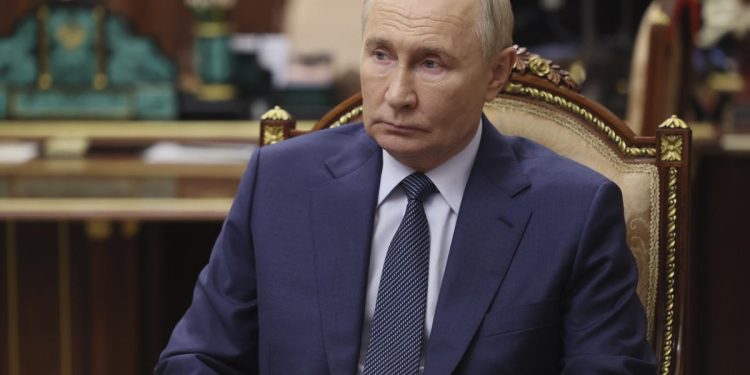MOSCOW (AP) — Russian President Vladimir Putin will host his Iranian counterpart this week for the signing of a broad partnership agreement between Moscow and Tehran, the Kremlin announced Monday.
The agreement on a “comprehensive strategic partnership” between the two countries will be signed on Friday during Iranian President Masoud Pezeshkian’s visit to Moscow, the Kremlin said.
He added that the leaders will discuss plans to develop trade and cooperation in transport, logistics and humanitarian areas as well as “acute issues of the regional and international agenda.”
Trusted news and daily delights, straight to your inbox
See for yourself — The Yodel is your go-to source for daily news, entertainment and feel-good stories.
Ukraine and the West have accused Tehran of supplying Moscow with hundreds of explosive drones for use on the battlefield in Ukraine and helping to launch their production in Russia. Iranian drone deliveries, which Moscow and Tehran have denied, have enabled a barrage of long-range drone strikes on Ukrainian infrastructure.
Iran, in turn, wants sophisticated Russian weapons like long-range air defense systems and fighter jets to help it repel possible attacks from Israel.
Tehran has long hoped to obtain advanced Sukhoi Su-35 fighter jets from Russia to modernize its aging fleet that has been hobbled by international sanctions, but has only received a few Yak-130 trainer jets in 2023.
Pezeshkian will visit Moscow three days before the inauguration of US President-elect Donald Trump, who has pledged to broker a peace deal on Ukraine.
Iran faces growing pressure in the Middle East. Its so-called “Axis of Resistance” has been shattered, with the Palestinian militant group Hamas the target of a brutal Israeli offensive. The Lebanese militant group Hezbollah was also badly hit in a series of attacks and Israel’s ground invasion of Lebanon. The Syrian government led by Bashar Assad, long financed by tens of billions of Iranian dollars, has collapsed.
Meanwhile, Iran’s economy remains in tatters after the collapse of the 2015 nuclear deal with world powers. Iran has also seen its Russian-supplied S-300 anti-aircraft batteries targeted by Israel.
Tehran is likely hoping to obtain financial and defense promises from Moscow. However, there is growing discontent with Russia within Iran’s powerful Revolutionary Guards, a paramilitary force that answers only to Iran’s 85-year-old supreme leader, Ayatollah Ali Khamenei. Last week, an audio recording was leaked to Iranian media in which a Guard general accused Russia of being responsible for many of Iran’s misfortunes in Syria.
__
Associated Press writer Jon Gambrell in Dubai, United Arab Emirates, contributed to this report.


